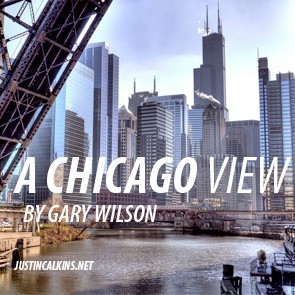
Gary Wilson
Commentary
By Gary Wilson
MACKINAC ISLAND, Mich. – After eight years on the sidelines during one of the most dynamic periods for the Great Lakes, two governors took the first step aimed at getting their gubernatorial colleagues to engage on the Great Lakes.
Michigan Gov. Rick Snyder and Illinois Gov. Pat Quinn last weekend hosted a long overdue Great Lakes “summit” on Snyder’s pristine home turf, Mackinac Island. The executives were last together to sign the Great Lakes Compact in 2005. For perspective, President George W. Bush was just beginning his second term.
The event is Snyder’s brainchild, emerging last year from his Energy and Environment position paper. He had noted the need for governors to engage on Great Lakes environmental issues, primarily fighting Asian carp and other invasive species.
Over time the priority morphed from the environment to three themes: economic development, regional collaboration and protecting the Great Lakes – specifically combating invasive species. The discussion over two days proceeded in that priority order.
Absent linchpin
What can be said about what should be a linchpin Great Lakes group — governors –that hasn’t met for eight years?
In that time the federal government has aggressively implemented the Great Lakes restoration plan born in the Bush administration and now funded by President Barack Obama.
Mayors launched a bi-national coalition to advance Great Lakes issues from their perspective. Environmental groups formed coalitions to advance the restoration cause.
And the governors?
Benign neglect comes to mind. They didn’t really do anything bad, they just didn’t do much of anything. In fairness, most of the current Great Lakes governors are still relatively new on the job, but they’re there now.
A love fest
It’s easy to become jaded after attending numerous Great Lakes conferences where platitudes and pronouncements flow like water over Niagara Falls. And as I watched this event unfold it seemed no different. It was a political love fest as governors went out of their way to praise each other for even simple things like showing up (the governors of Minnesota, Ohio, Pennsylvania and New York by the way were conspicuously absent).
But talk is what politicians do. It’s the coin of their realm and as I observed the conference I told myself to look for a kernel of substance. One emerged.
Quinn casually said that separating the Great Lakes from the Mississippi River is the “ultimate solution” to the advancing Asian carp problem. Looking around the room I saw heads turn and eyebrows raise as note takers tapped on keyboards to record the Illinois governor’s statement. Many, including myself, sought to verify what they heard.
It was an important statement from Quinn as he has been non-committal at best on the separation issue which is highly controversial in his state. It’s a tough sell as business interests and other constituents are dependent on the Chicago waterways system for transport and tourism jobs. They’re fine with the status quo. And when questioned by reporters at a later press event, he softened his statement falling back to emphasizing rigorous study.
Minimally a gutsy Quinn had acknowledged the elephant in the room. His colleagues, notably Indiana Gov. Mike Pence, were put on notice that the separation issue will be on the agenda sooner rather than later. Pence and most in Indiana who have a say are against separating the Great Lakes from the Mississippi as businesses in northwest Indiana are strongly on record against it.
Report card
There are two ways to judge this Great Lakes Governors Summit — style and substance.
On style, Quinn and especially Snyder, deserve an “A” grade for prompting the governors to finally engage. It’s easy for these executives to stay in their silos and ignore the region’s best interests. It’s hard to campaign on how well Michigan collaborates with Ohio or Indiana or any of its other neighbors.
Snyder lured them, perhaps with some sugar, to deviate from their schedules to trek to Mackinac Island. The sugar was that most of the discussion was about economic development, a topic that’s top of mind for every governor. While there was substantive environmental discussion it was mostly related to economic issues.
On substance the only possible grade is “Incomplete.”
Getting Great Lakes governors to talk about regional collaboration and to engage on environmental issues doesn’t mean it will happen. That’s the heavy lifting that needs to follow.
These governors face two significant regional environmental issues within a year:
- The Army Corps of Engineers will recommend how to deal with Asian carp early next year. Separating the Great Lakes from the Mississippi will be among the options. Will the governors take a stand and will they be unified?
- Waukesha, Wis. is poised to make the first request to divert water from the basin based on the Great Lakes Compact. That request will land on each governor’s desk sometime next year. All eight must approve what is a precedent setting request. Governors get paid to get these decisions right and there may be no more important Great Lakes related decision that they’ll make during their tenure. How they handle diversion requests will speak volumes to water conservation priorities for the region.
Snyder and Quinn have taken the risk to lead and return the governors to the Great Lakes game. Will their colleagues follow and engage beyond attending meetings on a resort island?
The Great Lakes community is watching.
Editor’s note: A broadcast of the Mackinac Island event can be viewed here.
